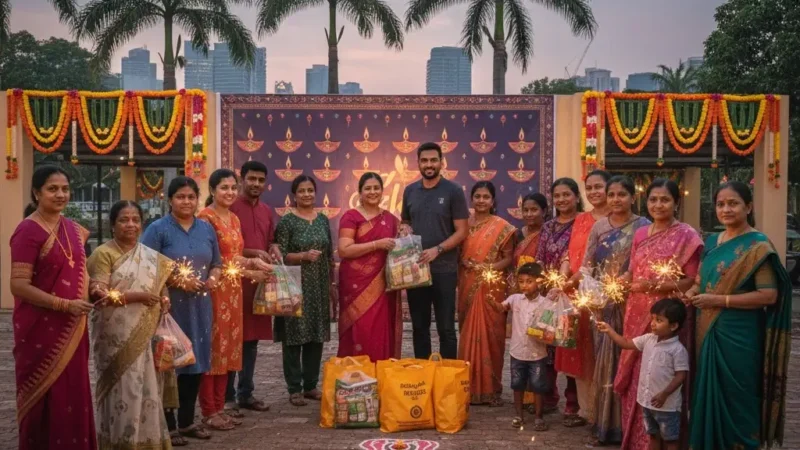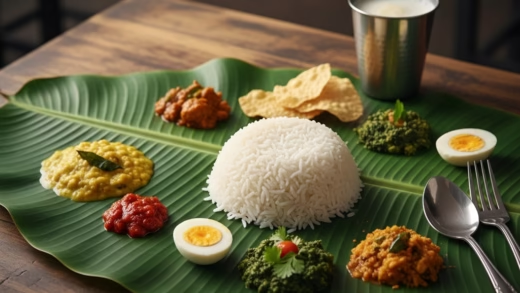Giving Back During Deepavali in Malaysia-Charity and Community Events

Introduction
Deepavali, also known as Diwali, is one of the most cherished festivals among Malaysia’s Indian community. Often called the Festival of Lights, it symbolizes the victory of light over darkness and good over evil. But in Malaysia, Deepavali has also grown into a season of compassion, charity, and community spirit — where families, temples, and organizations come together to give back to society.
This article explores Deepavali traditions in Malaysia, its historical roots, regional celebrations in Penang, Kuala Lumpur, Johor, and Ipoh, as well as ways Malaysians contribute to charitable causes during the festival.
The Origins of Deepavali in Malaysia
The Malaysian Deepavali history and culture trace back to the arrival of Indian migrants, particularly South Indians, during the British colonial period. They brought with them ancient Hindu customs and festival practices that have since evolved uniquely within Malaysia’s multicultural society.
Over time, Deepavali has transformed from a private religious festival into a public celebration that blends faith, food, fashion, and philanthropy. Temples such as Batu Caves in Selangor and Sri Mahamariamman Temple in Kuala Lumpur have become central venues for prayers, charity meals, and cultural activities.
Today, Deepavali in Malaysia reflects both continuity and compassion — preserving ancient rituals while embracing community service and inclusivity.
Significance of Deepavali for Malaysian Indians
Deepavali is not merely a festive holiday — it’s a reminder of spiritual and social values. For Malaysian Indians, it represents:
- Spiritual renewal: Cleansing the home and soul to invite prosperity and light.
- Family unity: Reuniting relatives and friends for meals, prayers, and open houses.
- Compassion and giving: Extending blessings through charity, feeding the poor, and helping the underprivileged.
These values define the Malaysian Indian festival celebrations and contribute to the country’s vibrant multicultural tapestry.
Traditional Deepavali Customs and Rituals
Home Preparations and Decorations
Before Deepavali, families clean their homes thoroughly and adorn them with kolam (colorful rice flour designs) and oil lamps (diyas) to welcome Goddess Lakshmi, the goddess of wealth and prosperity. Mango leaf garlands, marigold flowers, and festive lights further illuminate the home.
Religious Practices
On the morning of Deepavali, devotees wake early, apply oil on their heads (the symbolic Ganga Snanam bath), and visit temples for special prayers. Many households perform Lakshmi and Ganesha puja, offering sweets, fruits, and incense.
Festive Foods and Sweets
Traditional dishes are at the heart of Deepavali. Malaysian Indian families prepare:
- Murukku, omapodi, and mixture for savoury snacks
- Laddu, payasam, and adhirasam for sweets
- Vegetarian rice meals (thali) with sambar, rasam, and vegetable curries
These foods are shared with family, friends, and neighbours — reinforcing the festival’s message of joy and generosity.
Regional Deepavali Celebrations Across Malaysia
1. Penang – Streets of Light and Colour
In Penang’s Little India, the festival transforms the streets into a dazzling display of music, kolam art, and cultural shows. Locals set up charity stalls, distribute meals, and sell handmade festive goods, combining business with benevolence.
2. Kuala Lumpur – Temples and Open Houses
Kuala Lumpur hosts some of the most vibrant Deepavali traditions in Malaysia.
- Batu Caves becomes a spiritual and cultural hub with thousands attending prayers and community food drives.
- Sri Mahamariamman Temple, Malaysia’s oldest Hindu temple, organizes rituals, annadhanam (free meals), and cultural performances.
Government bodies and private organizations also host Deepavali open houses where Malaysians of all races are welcomed to celebrate unity and diversity.
3. Johor – Family-Centric and Community-Based
In Johor Bahru, Deepavali is celebrated with strong family and community values. Temples hold donation drives for orphanages, while local businesses organize food distributions and outreach programs for low-income families.
4. Ipoh – A Blend of Tradition and Togetherness
In Ipoh, the celebrations are more intimate but deeply rooted in tradition. Families gather for morning prayers, exchange sweets, and take part in local temple charity initiatives that support education and welfare causes.
Temples that Play a Key Role in Deepavali Charity
Batu Caves, Selangor
One of Malaysia’s most famous Hindu landmarks, Batu Caves serves as a focal point for religious observance and charitable work.
During Deepavali:
- Temples host free vegetarian meals (annadhanam)
- Organizers distribute food packets to needy families
- Volunteers participate in donation drives for schools and welfare homes
Sri Mahamariamman Temple, Kuala Lumpur
Located in the heart of KL, Sri Mahamariamman Temple is both a place of worship and community service. During the festival, it offers:
- Daily pujas and lamp-lighting ceremonies
- Cultural performances featuring Indian classical dance and music
- Outreach programs distributing food, clothing, and financial assistance
These temples embody the festival’s charitable spirit, promoting unity across communities.
Giving Back During Deepavali: Charity and Community Events
Deepavali’s essence extends far beyond family festivities. Across Malaysia, individuals, temples, NGOs, and corporations host charity and community events that spread joy and support to those in need.
Temple-Led Charitable Programs
- Annadhanam: Free meal distribution for devotees and the underprivileged.
- Temple donation drives: Fundraising for schools, orphanages, and senior homes.
- Prasadam sharing: Offering sweets and meals to the community.
Community and NGO Initiatives
- Food and grocery drives: Distributing essentials to low-income households.
- Clothing donations: Providing new attire for children and families.
- Health and education programs: Free medical check-ups and student aid.
Corporate Social Responsibility (CSR) Campaigns
Many Malaysian companies organize Deepavali CSR events, including charity bazaars, festive open houses, and donation-matching campaigns. These initiatives help amplify the reach of charitable giving.
Personal Acts of Kindness
Even simple gestures — inviting neighbours to a meal, gifting sweets to service staff, or donating small sums to verified NGOs — contribute to spreading the light of Deepavali.
Where to Participate in Deepavali Charity Events
Wondering where to celebrate Deepavali in Malaysia while giving back?
Here are a few practical ideas:
- Visit Batu Caves or Sri Mahamariamman Temple for volunteer opportunities.
- Check NGO and temple social media pages for ongoing donation drives.
- Join community centres in Penang, Johor, or Ipoh that host festive bazaars for charity.
- Organize a neighbourhood Deepavali food-sharing event.
Conclusion
Deepavali in Malaysia is more than just a festival of lights — it’s a celebration of compassion, unity, and giving. From lighting lamps at home to volunteering at temple kitchens, every act of kindness keeps the spirit of the festival alive.







Comments are closed.